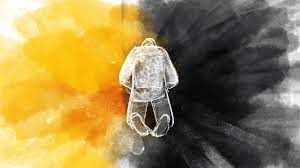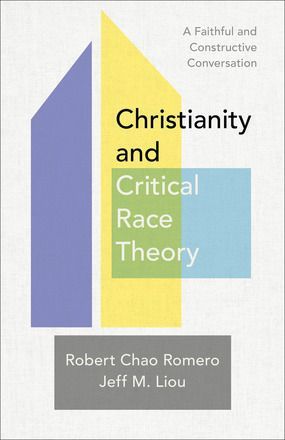God and Sin
Exploring the ocean of God's love and grace

I love the Oregon Coast, where the Pacific Ocean confronts us with wildness and wonder. I have spent very little time around the Atlantic but Grace and I got to visit my sister and her family on the Georgia coast in January. It felt a little wrong to experience the sun rising instead of setting over the ocean, but the ocean itself felt the same: wild, uncontrollable, immense, complex, unmeasurable. A bit like God.
I preached on Romans 15 recently. As with any passage of Scripture, there were things that I had to leave out because there is just so much there. Digging into a passage to preach it feels like climbing out of a boat in the middle of the ocean and trying to hold onto some of the water to bring it back to show others; there’s just far too much there. One of the ocean currents that I pointed to in my preaching but didn’t reply get a chance to explore is the character of God in relation to sin as revealed in Romans (and in Paul’s theology in general, and in the New Testament, and in the Hebrew Scriptures—it’s kind of everywhere). I’d love to dive a little deeper and do a little more exploring with you here. We’re not really answering all possible questions—these are ocean waters, with more depth and breadth than we could explore in many lifetimes! But the water is wondrous and beautiful and the exploration itself is a joy.
The question I’ve been pondering is this: how does our holy God relate to human sin?
Now, that’s a question with whole traditions built around the various answers, with small and large books staking out positions and working through implications. Most theological boats worth their weight have explored these waters. Growing up in evangelical land and then emerging from seminary in an era where The Gospel Coalition was a key leader in evangelical theological and pastoral reflection, I got used to hearing that God is holy and therefore cannot look on or tolerate sin. The church struggles because we don’t take sin seriously enough. Even: “It has been said that God hates the sin and loves the sinner. But it’s the sinner God sends to hell not just the sin." The ways we understand God, hell, humanity, the cross and atonement, the church and its mission, sin, and ourselves are all wrapped together.
I have a bunch of disentangling to do; the Bible reveals a God who relates to sin differently than I thought. Romans 15 is one of several passages to reveal a thread that needs pulling at. Or, to stick with the ocean metaphor: Romans 15 shows a flash of color and beauty that looks like it might be worth exploring.
In Romans 15, Paul is bringing his great letter to its climax. Paul invites the members of the Roman church to bear with one another’s weaknesses, please one another instead of themselves, and to welcome or accept one another because God in Christ bears with human weaknesses, pleases others rather than himself, and welcomes and accepts people. We bear with one another because God bears with us. Romans is a long, complicated letter but that’s one way to sum up much of Paul’s argument.
I love the passage in general, but there’s also that thread or flash of color that draws me in and I want to explore: Jesus bears our weaknesses, pleases us and not himself, and welcomes us. He does this as we are and for the sake of those who do not yet confess him as Lord. It reminds me of Philippians 2:5-11, where Paul tells us that Jesus entered our human experience as God or even because he is God. (This will have to be another post, but lots of translations of Philippians 2:6 say “though he was God”, which we can’t rule out through the grammar but seems to be missing the whole point. The force of the passage suggests that “because he was God” is a better way to read it, and the grammar is just as good.) God’s purposes and character are best fulfilled by God's presence with, bearing with, pleasing, and welcoming sinners.
If God cannot tolerate or look on sin, then how does it work for Jesus to come to us as God in the middle of our sin? What does it mean for Jesus to be the second person of the Trinity, the “radiance of God’s glory and the exact representation of his being” (Hebrews 1:3; NIV), to enter into sinful humanity, and even to suffer at the hands of sinners? As Paul says elsewhere in Romans, “while we were still sinners, Christ died for us” (Romans 5:8).
I know that the theological world I’m disentangling from has answers to all these questions. And I value the people who are coming up with and sharing those answers. The Gospel Coalition, and especially Tim Keller, has been important in my formation; I’m not trying to divide or discredit or anything. But I, personally, have found those answers constricting, unsatisfying, and incongruent with the whole of Scripture. To my soul, those answers feel like swimming in the pool that's on the ship's deck and calling it the ocean—they just don’t fit reality.
So, if you are interested in pulling at the threads with me—that is, with jumping into the water and exploring together—then follow along with the journey. Let me point out some of the directions I think we might go: I’m obsessed with the grammar and argument of Philippians 2:5-11, so I’d love to think about that with you; I’ve already looked at Jesus’ cry from the cross and Psalm 22 in this space, but we may take another look; it would be interesting to take a peak at hell and how God’s justice relates to God’s love; I think a discussion on Genesis 1-3 would be compelling; I’m in classes for ordination with the Covenant, and Covenant theology is way ahead of me on questions of God’s love and sin; it would be fun to explore God’s relationship to sin in the Hebrew Scriptures; let’s spend some time with Jesus and how he relates to sin and sinners; and I’m sure Revelation has something interesting to say about God and sin and justice.
In next week’s post, I think we’ll start with the passage that provides the key to the argument that God is too holy to look on sin: Habakkuk 1. There, Habakkuk tells YHWH, “your eyes are too pure to look on evil, you cannot tolerate wrongdoing” (Habakkuk 1:13). Should be fun.
In Christ,
Josh










